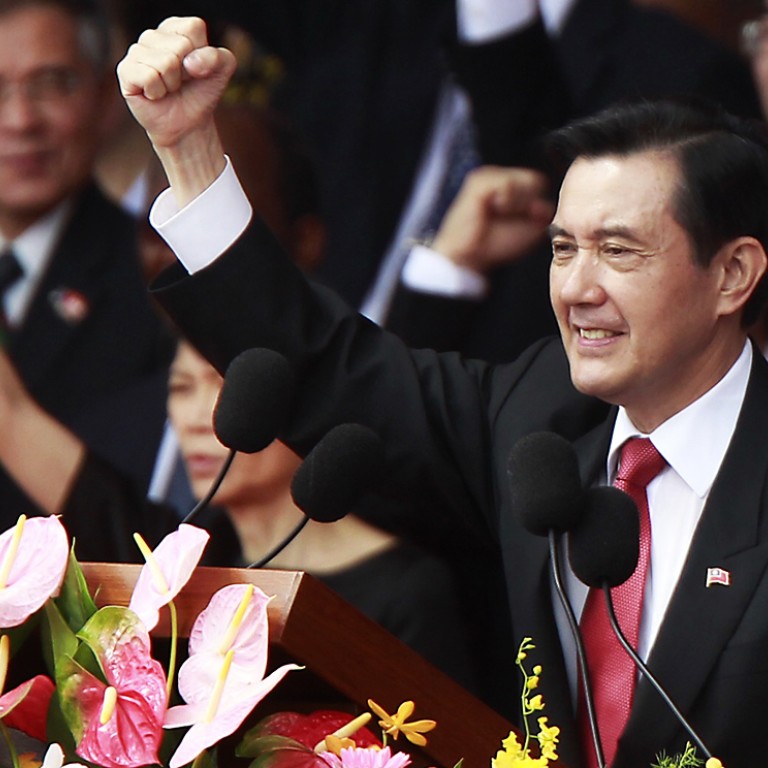
Mainland China should move towards democracy, Taiwan's president says
Ma Ying-jeou tells island National Day rally that growing affluence means time's ripe for reforms
Taiwanese President Ma Ying-jeou yesterday issued a rare direct call to Beijing to introduce democracy, saying the prosperity on the mainland made it the right time for it to do so.
In an uncharacteristically bold speech at a Double Ten National Day rally in Taipei, Ma said growing mainland affluence meant the daily needs of its people were essentially taken care of and now was the best time for the mainland to move in a democratic direction.
"Today, we again urge those on the other side of the Taiwan Strait to take note that now is the most appropriate time for mainland China to move towards constitutional democracy. The Chinese mainland is experiencing rapid economic growth, and its people lead affluent lives," Ma said.
"Now that the 1.3 billion people on the mainland have become moderately wealthy, they will of course wish to enjoy greater democracy and rule of law. Such a desire has never been a monopoly of the West, but is the right of all humankind."
Ma's comments came two weeks after thousands of Hongkongers took to the streets to protest against Beijing's limits on candidates for the 2017 chief executive election.
Underscoring his support for the people of Hong Kong, Ma said democracy on the mainland and in Hong Kong could develop with the wisdom that the mainland leaders had showed on economic reform. He said Deng Xiaoping proposed 30 years ago that some people get rich first, paving the way for reform and opening up of the mainland.
"So why couldn't they do the same thing in Hong Kong, and let some people go democratic first?" Ma asked.
"After all, the mainland would simply be making good on a pledge made 17 years ago when they said that for 50 years they would allow Hong Kong to be ruled by the people of Hong Kong, to have a high degree of autonomy, and to elect its chief executive through universal suffrage."
Ma said there was no formula for democratic development but he had faith in the ability of Chinese people everywhere to strike a proper balance between stable development and democracy and freedom.
Ma said Taiwan was "happy to work hand in hand with people on the mainland, in Hong Kong and Macau, and share our experiences and ... seek out the best step forward to political and economic reform on the mainland".
Observers said it was unprecedented for Ma to issue such a call on the island's National Day, although he had made such appeals at other events.
Analysts said Ma's appeal - made two weeks after President Xi Jinping revived the idea of Taiwan and the mainland uniting under the formula of "one country, two systems" - was a must if the two sides were to negotiate anything about future cross-strait relations.
"In private, like many other Kuomintang politicians, Ma is seen as supporting eventual cross-strait reunification under democracy and even a distribution of wealth, but in public he has to heed the majority voice that calls for maintenance of the status quo," said Sun Yang-ming, vice-president of the Cross-Strait Interflow Prospect Foundation.
Ma has vowed to maintain the status quo of no unification, no independence and no use of force under the constitutional framework of "the Republic of China", Taiwan's official title.
Since he took office in 2008, his policy to engage Beijing has led to rapid improvements in relations and the signing of 21 economic and non-political agreements between Taiwan and the mainland, once bitter rivals after the end of the civil war in 1949.
Ma has rejected the mainland's proposal for cross-strait unification under the "one country, two systems" formula adopted in Hong Kong and Macau.

